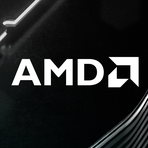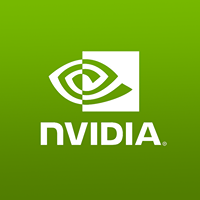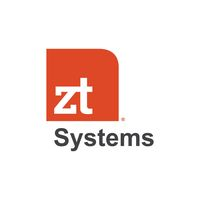AMD's Bold Move: Acquiring ZT Systems for $4.9 Billion
August 20, 2024, 5:29 am
In the fast-paced world of technology, every move counts. AMD, a titan in the semiconductor industry, has made a significant leap by acquiring ZT Systems for $4.9 billion. This acquisition is not just a financial transaction; it’s a strategic maneuver aimed at bolstering AMD's position in the competitive landscape of artificial intelligence (AI) and data center solutions.
AMD, headquartered in Santa Clara, California, is no stranger to competition. With Nvidia breathing down its neck, the company is determined to carve out a larger share of the AI market. The acquisition of ZT Systems, a New Jersey-based company specializing in data center infrastructure, is a calculated step in this direction. ZT Systems has a reputation for producing high-performance servers and has established itself as a key player in the AI infrastructure space. Their client roster includes heavyweights like Intel and Nvidia, making them a formidable ally for AMD.
The deal, announced on August 19, 2024, involves a combination of cash and stock. AMD will pay $4.9 billion upfront, with an additional $400 million contingent on performance milestones. This indicates AMD's confidence in ZT Systems' potential to enhance its AI capabilities. The integration of ZT Systems into AMD's Data Center Solutions group is expected to streamline operations and enhance product offerings.
AMD's CEO, Lisa Su, emphasized that this acquisition is a pivotal moment for the company. It represents a commitment to advancing AI technologies and improving data center solutions. By merging ZT Systems' expertise with AMD's existing hardware, including the AI Instinct accelerators and EPYC processors, the company aims to create a robust infrastructure for AI applications. This synergy could lead to more efficient and powerful data centers, catering to the growing demand for AI-driven solutions.
The timing of this acquisition is crucial. The AI market is booming, with businesses across various sectors investing heavily in AI technologies. Companies are racing to develop faster, more efficient systems to handle the increasing volume of data generated by AI applications. AMD's move to acquire ZT Systems positions it to meet this demand head-on. By enhancing its data center capabilities, AMD can offer comprehensive solutions that integrate hardware and software, providing clients with a one-stop shop for their AI needs.
However, the acquisition is not without its challenges. AMD plans to sell off ZT Systems' data center division to a strategic partner. This decision raises questions about the future of ZT Systems' existing client relationships and the overall direction of the company. While AMD is focused on strengthening its AI infrastructure, it must also ensure that ZT Systems retains its core competencies and continues to serve its clients effectively.
The competitive landscape is fierce. Nvidia remains a dominant force in the AI sector, and its recent advancements in GPU technology have set a high bar. AMD's acquisition of ZT Systems is a direct response to this competition. By enhancing its data center capabilities, AMD aims to level the playing field and attract clients who are looking for reliable and efficient AI solutions.
Moreover, the financial implications of this acquisition are significant. AMD is betting on the future of AI, projecting that its new line of MI accelerators will generate over $4.5 billion in revenue this year alone. This bold prediction underscores the company's belief in the potential of AI technologies. The integration of ZT Systems is expected to accelerate this growth, providing AMD with the tools it needs to compete effectively.
In conclusion, AMD's acquisition of ZT Systems is a strategic move that reflects the company's ambition to dominate the AI landscape. By combining resources and expertise, AMD is positioning itself as a leader in data center solutions. The success of this acquisition will depend on how well AMD integrates ZT Systems and navigates the competitive waters of the AI market. As the demand for AI technologies continues to rise, AMD's bold step could very well pay off, solidifying its place in the tech industry for years to come. The race is on, and AMD is ready to sprint.
AMD, headquartered in Santa Clara, California, is no stranger to competition. With Nvidia breathing down its neck, the company is determined to carve out a larger share of the AI market. The acquisition of ZT Systems, a New Jersey-based company specializing in data center infrastructure, is a calculated step in this direction. ZT Systems has a reputation for producing high-performance servers and has established itself as a key player in the AI infrastructure space. Their client roster includes heavyweights like Intel and Nvidia, making them a formidable ally for AMD.
The deal, announced on August 19, 2024, involves a combination of cash and stock. AMD will pay $4.9 billion upfront, with an additional $400 million contingent on performance milestones. This indicates AMD's confidence in ZT Systems' potential to enhance its AI capabilities. The integration of ZT Systems into AMD's Data Center Solutions group is expected to streamline operations and enhance product offerings.
AMD's CEO, Lisa Su, emphasized that this acquisition is a pivotal moment for the company. It represents a commitment to advancing AI technologies and improving data center solutions. By merging ZT Systems' expertise with AMD's existing hardware, including the AI Instinct accelerators and EPYC processors, the company aims to create a robust infrastructure for AI applications. This synergy could lead to more efficient and powerful data centers, catering to the growing demand for AI-driven solutions.
The timing of this acquisition is crucial. The AI market is booming, with businesses across various sectors investing heavily in AI technologies. Companies are racing to develop faster, more efficient systems to handle the increasing volume of data generated by AI applications. AMD's move to acquire ZT Systems positions it to meet this demand head-on. By enhancing its data center capabilities, AMD can offer comprehensive solutions that integrate hardware and software, providing clients with a one-stop shop for their AI needs.
However, the acquisition is not without its challenges. AMD plans to sell off ZT Systems' data center division to a strategic partner. This decision raises questions about the future of ZT Systems' existing client relationships and the overall direction of the company. While AMD is focused on strengthening its AI infrastructure, it must also ensure that ZT Systems retains its core competencies and continues to serve its clients effectively.
The competitive landscape is fierce. Nvidia remains a dominant force in the AI sector, and its recent advancements in GPU technology have set a high bar. AMD's acquisition of ZT Systems is a direct response to this competition. By enhancing its data center capabilities, AMD aims to level the playing field and attract clients who are looking for reliable and efficient AI solutions.
Moreover, the financial implications of this acquisition are significant. AMD is betting on the future of AI, projecting that its new line of MI accelerators will generate over $4.5 billion in revenue this year alone. This bold prediction underscores the company's belief in the potential of AI technologies. The integration of ZT Systems is expected to accelerate this growth, providing AMD with the tools it needs to compete effectively.
In conclusion, AMD's acquisition of ZT Systems is a strategic move that reflects the company's ambition to dominate the AI landscape. By combining resources and expertise, AMD is positioning itself as a leader in data center solutions. The success of this acquisition will depend on how well AMD integrates ZT Systems and navigates the competitive waters of the AI market. As the demand for AI technologies continues to rise, AMD's bold step could very well pay off, solidifying its place in the tech industry for years to come. The race is on, and AMD is ready to sprint.


